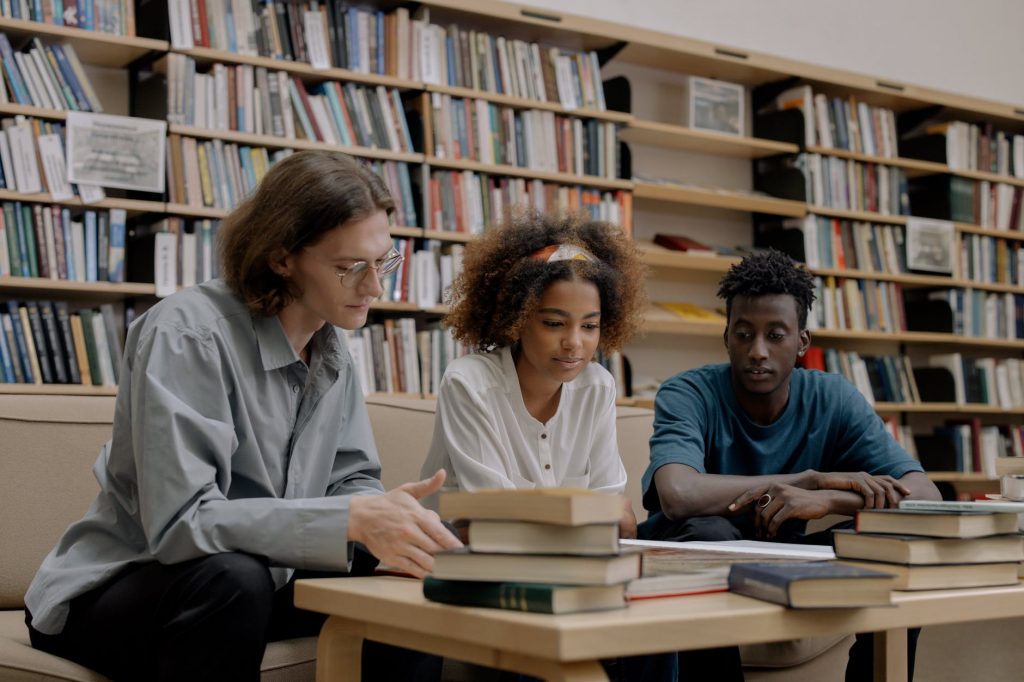If you take a look at the impact of history on the development of the educational system in the US, you will see the direct correlation between wealth and education. During the early years of the country, education was exclusively reserved for the rich.
Of course, you now know that this changed as it was later recommended that education should be a requirement for all ages. This gave the generations of students a chance to learn what they needed from teachers.

Parents used to educate their children
Throughout the history of education in the US, public schools have always played several key roles. These roles are the outgrowth of why public schools came to be and how they’ve changed for the better through the years.
Without a formal system of funding education, schools would depend entirely on the tuition fee payment from parents, property taxes, charitable contributions, state support, and fuel contributions. For instance, during the American Revolution, several towns and cities in the north-eastern part of the country had schools paid for by the citizenry, which isn’t the norm.
It took time for history to make an impact
The earliest public schools in the US didn’t focus solely on academics. Back then, the emphasis of education was on religion, community, and family virtues. During colonial times, girls learned how to read, but they didn’t learn how to write.
It was only during the middle of the 19th century that academics became the primary responsibility of schools. In the south, between the 1600s to the 1700s, there were only a few public schools. The families who had the means hired public tutors to teach their children. As history tells us, this changed after the American Civil War when public schooling became more common.
Writing a research paper on history topic
While you’re in college, you will cover a wide range of topics and subjects. Everything you learn will be part of your education. Then there will be times when you need to complete written assignments for your courses. When assigned to write a paper about history and you need help, research paper writing service EduBirdie will be there for you. This service offers writers for hire who specialize in academic writing, no matter what the topic or subject and the level is.

Progressive education and segregation
The concept of progressive education began in the latter part of the 1800s and it became widespread around the 1930s. This involved educating children to help them reach their full potential. This type of education allows children to actively participate in and promote a democratic society. History played an important role in the evolution of US education in the US, as seen in various milestone events.
In the 1900s, 31 states made school attendance a requirement for students between the ages of 8 and 14. In the year 1918, all of the states made it compulsory for students to complete their elementary education.
Throughout the 1960s, the system of schools in the US was racially segregated, but in the latter part of the 1970s, they eliminated this segregation. By the year 2001, the US entered its existing era of education reform and accountability with the “No Child Left Behind” law.
The emergence of technology
With the introduction of computers, technology has begun to inch its way into classrooms. Advancements in this field made it inevitable for schools to gradually turn to these devices to facilitate both teaching and learning. The past decade alone has shown how these machines have become smaller, more advanced, and more economical. Whether you’re visiting Turkey as a student or you plan to study in the US, you will see such advancements in action right away.
Scientists and educators now imagine the endless possibilities when it comes to using these innovations. In the 1980s, computer-aided instructions became the norm in both K-12 and higher education.
By the 1990s, computers had become an integral part of classrooms throughout the country. This led to the technological revolution. As a consequence, there is now an increase in the need for soft skills in the workplace, including socio-emotional intelligence and leadership skills. Modern workplaces no longer require a factory-making mindset. They look for a mindset that can overcome and adapt to new challenges. Educators are now confronted with the new challenge of adapting their teaching strategies to these modern needs.
Conclusion
Through the years, education has been constantly adjusted to prepare the students to face the world. History has played a big role in what modern education is but it will still continue to evolve depending on societal needs and norms.
Author’s Bio
Craig Brown is a passionate writer who works as a freelance content writer and editor for a leading online publication and for the top freelance academic sites. He loves writing and that makes him good at his work who always ensures client satisfaction. His free time is for playing tennis, watching wrestling on TV and reading business books.

